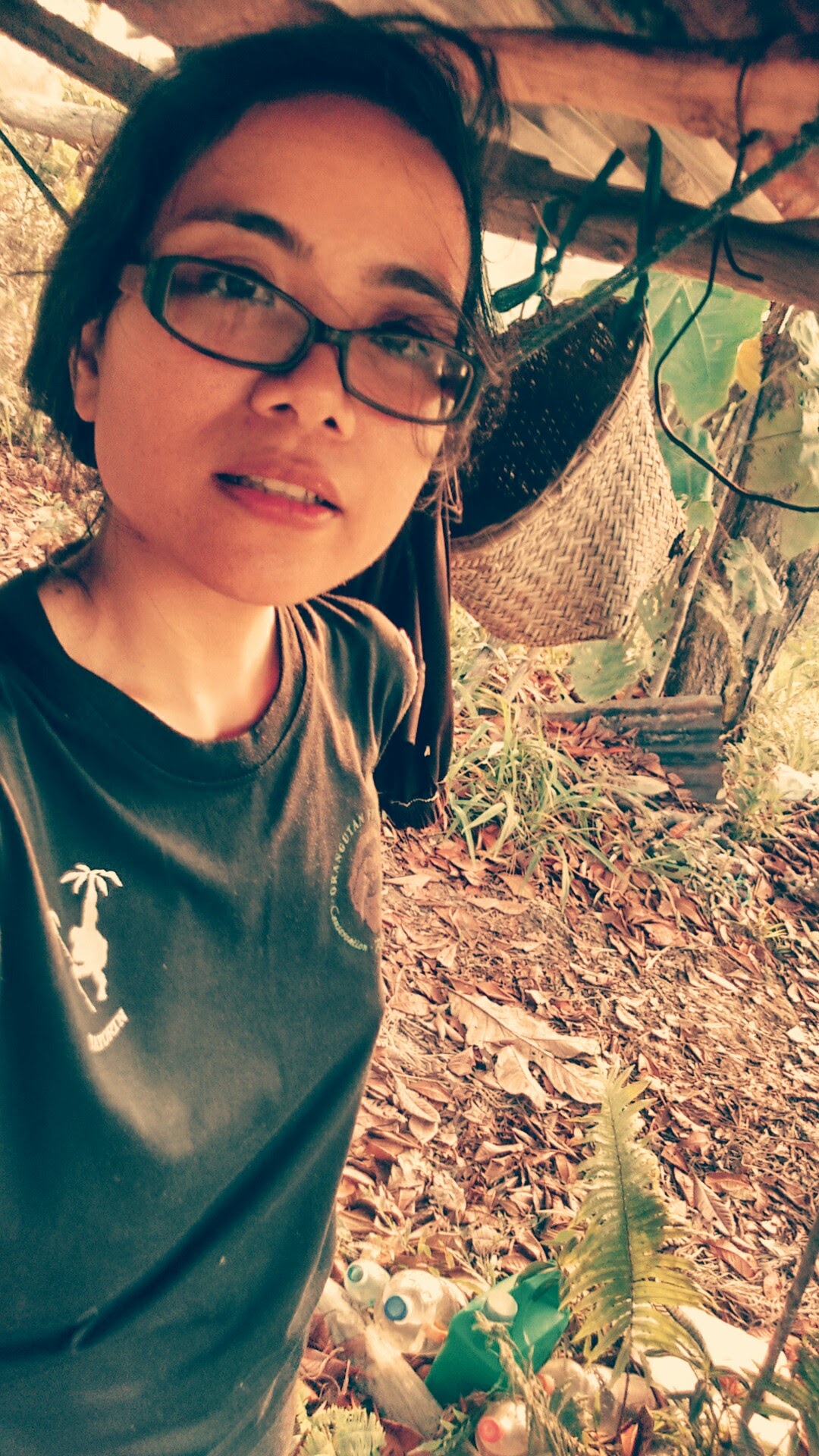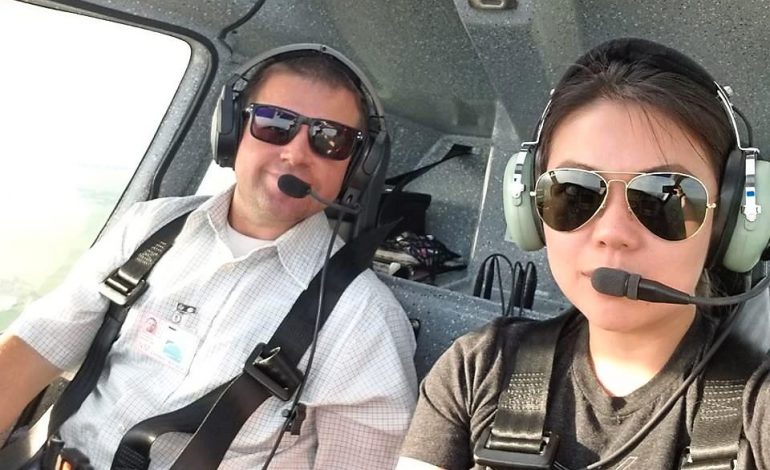Tapping indigenous knowledge to protect orangutan

June Rubis at a rice field in Sarawak © June Rubis
WHEN Malaysian June Rubis was an undergraduate at a Canadian university, she was told by a professor that she could never do orangutan field research because she was a woman, of the wrong nationality – even though orangutans are found in Malaysia – and that she would never have enough capital to do it.
Today, Rubis is the first Dayak and indigenous female wildlife researcher to embark on long-term field research in Borneo, focusing on primates. (Dayak refers to the non-Muslim indigenous groups of people who live on Borneo island.)
In fact, she has been actively involved in orangutan conservation and indigenous rights issues for almost two decades now.
“I proved him wrong! So never listen to the naysayers because they have a lack of imagination to make it work for themselves and especially for other individuals who they perceive as ‘not having the right fit’. Be bold and break the mould,” Rubis told DW.
From Kuching, Sarawak, a Malaysian state located in Borneo, Rubis has been interested in nature and wildlife ever since she was young.
When she was in her pre-teens, she remembers watching a documentary on the renowned primatologist and conservationist Dr Birute Galdikas.
“I remember having this clarity that I too would be in the jungles of Sarawak one day, following orangutans like she was doing in Kalimantan, Indonesia,” she recalls.
As fate would have it, Rubis ended up in the same university where Dr Galdikas was teaching in Canada, at the Simon Fraser University, where Rubis pursued her degree in biology.
“I took her class in primates but never really talked to her about my aspirations because I was too shy and unsure of myself then,” Rubis, 41, admits.
After she graduated, Rubis joined the Wildlife Conservation Society where she stayed for seven years, involved in conservation projects in Sarawak. She continued to work in conservation with a few other organizations after that.
In 2014, she obtained her Masters in Environmental Change and Management from Oxford University’s School of Geography and Environment.
Currently, Rubis is pursuing her PhD at the same university. Her research is related to indigenous rural communities, land rights and conservation.
Having been educated overseas, for a long time her knowledge on conservation was largely Western-centric and initially she practiced a top-down approach in her work.
However, she has come to realize the value and importance in working with local communities when it comes to conservation.

June Rubis with some children at a longhouse in Sarawak © June Rubis
Of Bidayuh and Filipino parentage, Rubis has always been aware of her roots and heritage.
“My father, (who is from a small village called Bau in Kuching) has always respected and honored rural communities’ knowledge, so I was also following his lead.”
“As conservationists and scientists trained in the Linnaean classification system, we are taught to dismiss all native knowledge as ‘folk tales’. We don’t consider indigenous knowledge as equal to what we learn in schools. And I think in doing so, we miss so many learning opportunities in our local context. It’s time to change that.”.
She explains that indigenous communities have their own way of categorizing the orangutans according to the habitat they live in and their body, shape and fur colour.
The word “orangutan” is not indigenous. It was coined by Western explorers in the 16th century. In Sarawak, the orangutan is called ‘maias’ or ‘mawas’.
Rubis feels that more Sarawakians should get involved in tackling controversial issues surrounding indigenous land rights, development and conservation.
“What helped me in the early stages of my journey, especially when I did not have any direct mentoring, was to find older women who were in similar career paths and to ask them to mentor me.
“I had one mentor whose name was Rebecca D’cruz, a wetlands expert, and she was wonderful in making me feel like I could do whatever I wanted to, but also that I also had to be patient and build up my own career skills and knowledge,” says Rubis, who hopes to write a book about her experiences one day.
From Oct. 31 to Nov. 1, Rubis will be participating in a workshop at the Max Planck institute in Göttingen, Germany where she will discuss her research.
Author: Elle Wong (act)





